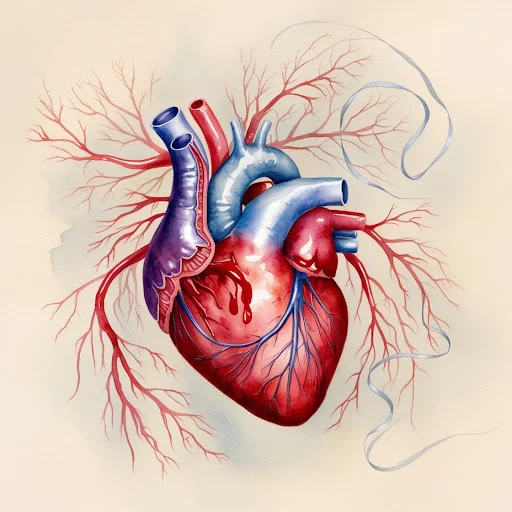A Healthy Living Guide to Prevent Heart Disease According to European Medical Experts
Heart disease remains one of the leading causes of death worldwide, but many cases can be prevented through a healthy lifestyle. European medical experts emphasize the importance of adopting specific habits and practices to maintain heart health. This article provides a comprehensive guide to living healthily to prevent heart disease based on expert advice.
Understanding Heart Disease
Heart disease encompasses various conditions that affect the heart, including coronary artery disease, heart attacks, and heart failure. Risk factors include high blood pressure, high cholesterol, obesity, smoking, and a sedentary lifestyle. Addressing these risk factors through healthy living is essential for prevention.
Diet and Nutrition
1. Embrace a Heart-Healthy Diet
A balanced diet is crucial for maintaining heart health. European experts recommend the following:
- Fruits and Vegetables: Aim for at least five servings a day. These are rich in essential vitamins, minerals, and antioxidants.
- Whole Grains: Choose whole grain bread, pasta, and cereals over refined grains to ensure adequate fiber intake.
- Lean Proteins: Include sources such as poultry, fish, beans, and legumes.
- Healthy Fats: Opt for unsaturated fats found in olive oil, nuts, and avocados. Limit saturated and trans fats.
2. Reduce Salt and Sugar Intake
Excessive salt can lead to high blood pressure, while too much sugar can contribute to obesity and diabetes, both of which are risk factors for heart disease. Limit processed foods, sugary beverages, and snacks high in added sugars.
3. Mediterranean Diet
The Mediterranean diet, popular in many European countries, is lauded for its heart health benefits. It emphasizes fruits, vegetables, whole grains, legumes, and healthy fats, with moderate consumption of fish and poultry, and limited red meat.
Regular Physical Activity
1. Exercise Recommendations
Engage in at least 150 minutes of moderate-intensity aerobic exercise per week, such as brisk walking, cycling, or swimming. Additionally, include muscle-strengthening activities at least two days a week.
2. Benefits of Physical Activity
Regular exercise helps lower blood pressure, reduce cholesterol levels, manage weight, and improve overall cardiovascular health. It also boosts mental health and reduces stress.
3. Active Lifestyle
Incorporate physical activity into your daily routine. Take the stairs instead of the elevator, walk or cycle for short trips, and take regular breaks to move if you have a sedentary job.
Weight Management
1. Maintain a Healthy Weight
Excess weight, especially around the abdomen, increases the risk of heart disease. A healthy diet combined with regular exercise can help achieve and maintain a healthy weight.
2. Monitor Your Body Mass Index (BMI)
A BMI between 18.5 and 24.9 is considered healthy. European experts recommend monitoring BMI and waist circumference as indicators of healthy weight.
Avoid Smoking and Limit Alcohol
1. Quit Smoking
Smoking is a major risk factor for heart disease. Quitting smoking improves heart health almost immediately. Seek support from healthcare providers, counseling services, and smoking cessation programs.
2. Limit Alcohol Consumption
While moderate alcohol consumption may have some heart benefits, excessive drinking increases the risk of high blood pressure, heart disease, and stroke. Limit alcohol to one drink per day for women and two drinks per day for men.
Stress Management
1. Practice Stress-Reduction Techniques
Chronic stress can negatively impact heart health. Techniques such as mindfulness, meditation, deep breathing exercises, yoga, and tai chi can help manage stress.
2. Balance Work and Leisure
Ensure a healthy work-life balance. Take time to relax, pursue hobbies, and spend time with family and friends to reduce stress levels.
Regular Health Screenings
1. Monitor Blood Pressure and Cholesterol
Regular check-ups with your healthcare provider are essential. Monitor blood pressure, cholesterol levels, and blood sugar levels to detect any abnormalities early and take corrective measures.
2. Follow Medical Advice
Adhere to the treatment plans and recommendations provided by your healthcare provider. This includes taking prescribed medications and following lifestyle recommendations.
European Initiatives for Heart Health
1. Public Awareness Campaigns
European countries run various public health campaigns to raise awareness about heart disease and promote healthy lifestyles. These campaigns provide valuable information and resources to the public.
2. Community Support Programs
Community programs offer support for healthy living, including exercise classes, nutrition workshops, and smoking cessation support groups.
3. Research and Innovation
Ongoing research in Europe focuses on understanding heart disease and developing new treatments and prevention strategies. These advancements contribute to better heart health outcomes for the population.
Conclusion
Preventing heart disease through a healthy lifestyle is within reach for everyone. By following the guidelines provided by European medical experts—adopting a balanced diet, engaging in regular physical activity, maintaining a healthy weight, avoiding smoking, managing stress, and attending regular health screenings—you can significantly reduce your risk of heart disease. Take proactive steps today to protect your heart and ensure a healthier future.
Stay informed, stay active, and prioritize your heart health for a longer, healthier life.
 Reviewed by Rendra dria
on
June 23, 2024
Rating:
Reviewed by Rendra dria
on
June 23, 2024
Rating:










No comments:
Please comment properly. For those who have difficulty commenting, please use Anonymous. Thank you for your participation.